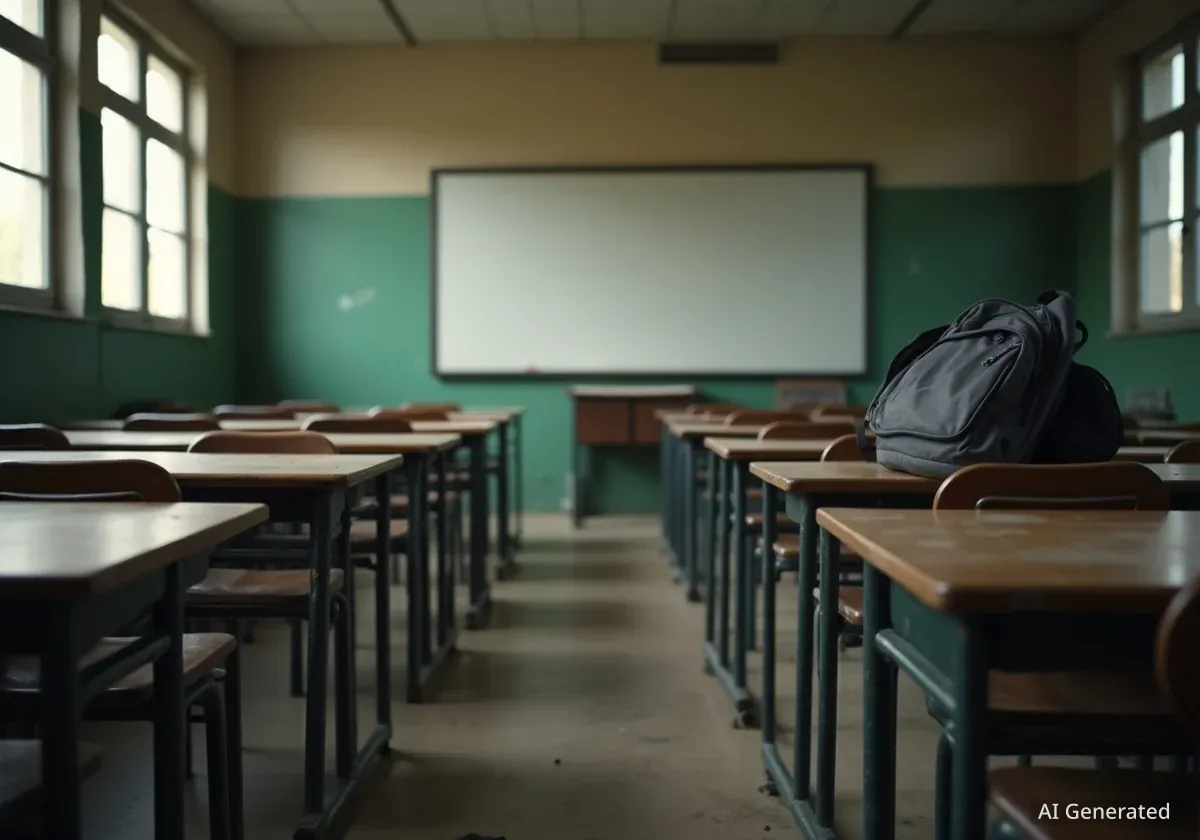A group of 29 headteachers from across Liverpool has issued a stark warning to Chancellor Rachel Reeves, stating that their schools are at a “breaking point” due to severe and prolonged funding shortages. In an open letter sent just before the Labour Party's annual conference in the city, the school leaders claim that Liverpool schools have collectively lost £52.3 million in real terms since 2010.
Key Takeaways
- 29 Liverpool headteachers signed an open letter to Chancellor Rachel Reeves detailing a school funding crisis.
- The letter claims Liverpool schools have lost £52.3 million in real-terms funding since 2010.
- Headteachers report making difficult cuts to staff, subjects, and resources, particularly affecting students with special needs.
- The Department for Education disputes the figures, stating it is investing £3.7 billion more into school budgets.
- Analysis from the Institute for Fiscal Studies (IFS) suggests that while overall funding has returned to 2010 levels, much of the increase has been absorbed by rising costs for special educational needs.
Headteachers Detail Financial Pressures
The open letter, timed to coincide with the arrival of Labour delegates for their national conference at the ACC Liverpool, calls for a restoration of funding to levels seen under the last Labour government. The letter highlights analysis from the Stop School Cuts Coalition, which suggests that 86% of schools in Liverpool have experienced real-terms financial losses over the past 14 years.
School leaders describe a daily struggle to maintain educational standards while balancing shrinking budgets. They warn that “years of chronic underfunding” have forced them into making difficult decisions that negatively impact students and staff.
Voices from the Frontline
Karen Barr, headteacher at Dovecoat Primary School, explained the severe strain her school is under. “We are currently in a deficit budget and are providing a good education with no funding to supplement curriculum demands,” she stated. Barr highlighted the growing challenge of supporting pupils with specific needs.
“The stress on staff is increasing and cuts to jobs are a real threat. We have a high intake of Send [special educational needs and disabilities] issues and EHCPs [Education, Health and Care Plans] with complex needs to meet and no funding to support this.”
Christopher Davey, headteacher of Blessed Sacrament Catholic Primary School, echoed these concerns, describing the impact of budget cuts as “devastating.” He noted that the widening gap between student needs and available funding affects the quality of education, student progress, and staff well-being.
National Context
Research published earlier this month by the Stop School Cuts Coalition, a group run by major teaching unions, found that seven in 10 schools across England have seen their budgets cut in real terms since 2010.
Unions and Campaigners Increase Pressure
The campaign to highlight the funding issue is extending beyond the letter. During the Labour conference, four vans are scheduled to circle the venue with messages calling on the government to “reverse school cuts.” This action is supported by the National Education Union (NEU), which is part of the Stop School Cuts Coalition alongside the Association of School and College Leaders (ASCL) and the NAHT school leaders’ union.
Daniel Kebede, general secretary of the NEU, emphasized the difficult position school leaders are in. “Headteachers are making heartbreaking choices about whether to cut subjects, staff or resources just to balance the books,” he said. Kebede praised the Liverpool headteachers for taking a stand and urged the Chancellor to listen to educators and restore school funding.
Unions have also raised concerns that schools will struggle to cover the full cost of the teacher pay award for the 2025/26 academic year without additional government support.
Government and Independent Analysis
The Department for Education (DfE) has contested the figures presented by the headteachers and the Stop School Cuts Coalition. A spokesperson for the department stated, “We do not recognise these figures.”
Department for Education Response
The DfE maintains it has protected education priorities. A spokesperson said, “We are putting a further £3.7 billion into schools’ budgets, including increasing pupil premium to over £3 billion for 2025-26 to provide additional support for those children that need it most.” The department also pointed to initiatives like free breakfast clubs and investment in school buildings as evidence of its commitment.
Independent analysis from the Institute for Fiscal Studies (IFS) offers a more complex picture of school funding. According to the IFS, total school spending per pupil in England grew by 11% in real terms between 2019/20 and 2024/25. This increase was sufficient to reverse previous cuts and bring per-pupil spending back to the levels seen in 2010.
However, the IFS report clarifies a critical detail. Luke Sibieta, an IFS research fellow, noted that almost half of this growth is attributable to spiralling costs for supporting pupils with high needs. When this is accounted for, the real growth in funding for mainstream school services is estimated to be closer to 5%.
Sibieta concluded earlier this year that despite the headline increase, “in reality, the next few years are likely to continue feeling very tight for schools.” This assessment aligns with the experiences reported by the headteachers in Liverpool, who argue that funding is not keeping pace with rising costs and increasing student needs.





